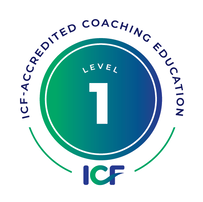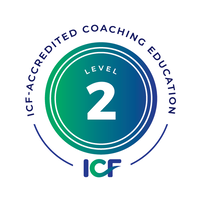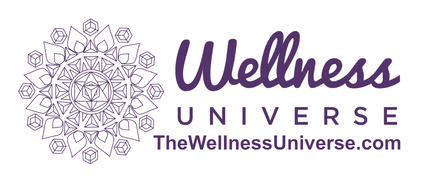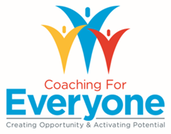|
Laurel Elders:
Welcome to Coffee Coaching and Callings, a live podcast created for coaches, leaders, and helping professionals that are on a mission to lead a successful and heart centered life. Your hosts today are myself, Laurel Elders, and Dr. Kristen Truman Allen of the Institute for Integrative Intelligence, where our mission is to elevate human potential through the art and the science of Masterful coaching. This week, we are focusing on Coaching Mastery, and today's topic is on subtle distinctions. So this talk will really be geared towards, deepening your coaching skills. If you are already coaching, or if you're just learning coaching, we hope that these conversations will help you deepen sooner. Kristen Truman-Allen: Cheers. Laurel Elders: Yes. So there's so much here, especially I know, Kristen, you've been also studying what we now call Level Three coach training. That Master Certified Coach level. And going through that journey myself, I was so surprised how much I learned on that Level Three training journey. Kristen Truman-Allen: Me too. Yeah, it's surprising, right? You think that you've kind of got it, you have a general understanding, your clients are getting results, and then you take it to this other level and you're thinking, wow, um, what could I do to even make it better for my clients and for me in terms of thinking? And even when you said we're talking about distinctions and you said the art and science of coaching, that's a subtle distinction, too, right? Which I think we'll get to today. The artful piece as well as the science. Laurel Elders: Yes, absolutely. I was thinking, um, and one of the things that we talk about in our coach training is the difference between, um, rational and non rational and irrational. And so rational ways of knowing are more logic, in our mind, we can think things through, but sometimes some of our answers are buried within and our body might give us a prompt as we're thinking something, the body has a different reaction. It doesn't make sense, it's not rational, but yet what just happened. And that's an invitation to go deeper with our clients, and really help them. Kristen Truman-Allen: Yeah. I like to think of it as that linear versus nonlinear. And when you talk about out of left field how can we help our clients find that other space. Find those other answers that don't make sense, but that are being informed by something that got said offhandedly or something that's happening in a body movement or something that's shifted in that energy, that you can hear even if you're not in person, visually. Right? Laurel Elders: Yeah, absolutely. And just to make a distinction, while we're here, we are defining coaching as helping our clients get to their own wisdom. So it's what I call, is second journey coaching, where we take clients, so the first journey is somebody's being shown the way by someone else through guidance or a book or teachings on how to find their potential. So something outside of that person is helping them see new possibilities. But that second journey, where somebody has to find their potential by going within. That's what we're talking about with coaching today, just to clear that up. So really helping somebody locate their own answers, their own wisdom, their own power, nobody can give that to you. And the role the coach plays in that, so how do we show up without bias, in honor of the person that we are coaching? Their wisdom. And that's not necessarily easy to learn, is how to show up completely neutral and not have an opinion of where the client wants to go next. Kristen Truman-Allen: Right. Not just where they're going to go next, but have an opinion about the solutions they're coming up with. Right. So how do we know that bias? It makes me think about our own self awareness. So when we're talking about mastery, we as coaches, have to really be in tune with our own emotional responses and where we're activated, in order to stay neutral. So I'm thinking of you know, those moments where I can feel it, I can feel tugged or, um, energized when a client is saying something that feels connected to my own value or to my own expertise, or what I maybe was thinking might be a good solution based on my intuition. And so I can feel that vibration and that feeling of almost coming out of my seat, like there's something else I want to add, which is not my role as the coach. Right. So having that awareness of what our biases are, is what's coming to me. Right. Like just knowing so that you can manage it. Self manage our emotions. Laurel Elders: Yeah, absolutely. And I hear it in mentor coaching sometimes, too, where the coach gets excited before the client, or the coach might step in and try to help the client and say, "you've got this", and does the pep talk or what we call cheerleading. And you know what's fascinating, that's taking somebody on that first journey is showing somebody the way. But to really take someone on that second journey, the question of how can you get "I've got this" to come from the client. So they feel it, it's coming from them versus the coach supplying something. And that shift of, oh, it just reminds me of if you give someone a fish, you fed them for a day, because it didn't come from.... you know, If you teach someone to fish, you fed them for a lifetime. And to me, coaching is, yeah, it's taking someone deeper into themselves, so then they get to the point where they're like, hey, wait a minute, I've got this, I can do this. But it's coming from within. Nobody had to supply that. Kristen Truman-Allen: Yeah, it really resonated for me when in my mentor coach training, in my MCC training, Carly talked about the neurological response that inflammatory, the endorphin rush, when you have a really good idea, or when you're connected. And we want the client to have that because that's what will drive change, that motivation, that inspired action is where they will have movement and also physiologic insight. And so, that awareness of like, oh, that's happening for me. And then, like you said, how do I, what are the kinds of questions or reflection or acknowledgment that I can do as the coach to help the client access that for themselves and put mine on the side. And let it inform me, but not drive the conversation. Laurel Elders: Right. Right. It's so humbling. I remember, I'm just resonating with what you're saying, because in my own coach training journey and mentoring, I remember times getting off the call, being like, that was, oh, I just felt like I was in my flow. And then I just felt so good getting off the call. Well, I realized, looking back, I was attempting, this is when I was first starting, I was still grasping distinctions, I was doing more mentoring and providing and believing I was cheerleading. So I was getting all the dopamine, right. Like what you were just sharing. And I was thinking about like, oh my gosh, but did the client have that experience? Probably not, because they're trying to play catch up, because the coach is excited. And, and come to find out, that wasn't really coaching. so, You know I think becoming a coach can be such a personal growth journey, too, because we... Becoming a coach, taking someone on that second journey, where we do not provide, the client finds it within themselves. That is a place of humility. Complete honor of the other, and complete acceptance. Like, there's so many ingredients that go into it. Kristen Truman-Allen: So much trust. Laurel Elders: Yeah. And the removing of bias. Powerful. It's really powerful. Kristen Truman-Allen: I'm curious, when we're talking about bias, we've so far been talking about the bias of our own ideas, which I think comes from our own expertise. Where else do you think that bias comes from, as it relates to the coaching conversation? Laurel Elders: Yeah. Something that, I find fascinating is that not all bias could be a negative. So, here's a distinction, since we're talking about subtle distinctions today. In your research with metaphors in coaching, you found, and correct me if I'm wrong, but you found that even if the coach ended up presenting a metaphor, the client could still benefit from that. Is that accurate? Kristen Truman-Allen: Yes. Laurel Elders: So that's fascinating. And sometimes it was client generated. So that, to me, indicates if the coach does bring in a metaphor, that that would be introducing a bias or a lead, and it's not necessarily always a negative. So the question is, when is bias a liability that would hold the session back and when can it be an asset? Kristen Truman-Allen: HM. Yeah. So speaking from a metaphor perspective, I think where it becomes a liability is if the coach is attached. If the coach has a direction or an attachment to where they want the client to go with that metaphor or with the image that comes forward, then it becomes the coach in the way of the client's own progress. So if I've said a metaphor out loud because I'm curious and I'm trying to help them find something, I might notice something that was an intuitive hit. And if I said it, I have to be completely detached and let the client say, actually it's more like this. Right. Or I guess it also could become a liability if we're not careful and we're somehow accidentally coaching someone in trauma, then it could become a trigger. And so we want to have clean language as much as we can and know who our clients are and be in partnership. So if the client can be in that back and forth of, um, actually no, that's not what it is, it's something like this. So an example might be somebody might have said they were stuck. And so I might have said, is it stuck like being in quicksand? They might say, no, it's actually stuck like I'm spinning on a bicycle on ice. Or I'm stuck like, um, I feel rooted like a carrot, or you know what I mean? So if you're in that playful kind of discourse, then there's that distinction of I'm not leading, I'm being curious. And I'm offering some other outside conversation to bring it new ideas coming forward. And the liability is if I'm attached. And if I stay in the metaphor, what I brought forward and it didn't have any energy, they didn't want to go forward with it. It didn't matter then, then now I'm in the way of the client finding their own wisdom. Laurel Elders: Yeah. Well, I was just thinking on the PCC markers 7. 5. So under Evokes Awareness, it's the coach shares and then invites. So my original mentor, Sandy Hogan, she brought this concept of, coaching is the wisdom of both the coach and the client. And that really that helped me because my initial coach training, it was like, it's the client, it's the client, it's the client. I was almost like, oh my gosh, I have to leave everything at the door. Which is true. We do honor the client's wisdom. Everything we're doing is in honor of that wisdom. And if something's popping in intuitively, there might be wisdom to that, I don't know. So if I share something that might pop in and then invite, then the client is included in the dialogue. So I don't know, I'm just going to throw this out there. But if I say, oh, as speaking to the client, as you're sharing this, this visual of, let's say a metaphor, popped in and I share it. But I'm just curious, I don't know if that resonates or has any meaning for you. It puts it back on the client. So, I'm sharing but not putting it into the conversation as this needs to be here. So there's that, take it or leave it. Kristen Truman-Allen: And I think it's important that you honored that. Right. There's something about that and it comes off and comes up. Like you said, that image happens. And I would say probably nine times out of ten, there's something to that image. If you're connected and locked in and in sync with that client. Tthere's some energy that's happened that's a connection. And I've been really surprised at how often there was some magical hit that I have no idea where it came from, right. But trusting the magic and trusting the client to do whatever they want to do with it, if nothing else, like you said, you're sharing and inviting and then, letting it all unfold, however it's going to unfold. Laurel Elders: Yeah. Kristen Truman-Allen: And you were talking about, as we talk about metaphor, there is that piece of the distinction of who, where it comes from. I would always try and let it come from the client first. But also as we're talking about bias, it makes me think of language in general. So, what you might have meant by a specific word is, I might hear it differently based on my own lens, my own bias, my own values. Laurel Elders: Right. Which is very connected to 6. 2 Active Listening explores the Language so I'm not assuming I understand that how the client is using the word is the same way I use a word. Kristen Truman-Allen: Right. Which helps culturally too, right. Because metaphors work in between cultures in a really powerful way. But we have to listen because what words mean, are, they're different. Mhm and so staying in curiosity in order to be aware of our bias and make sure that it's not a liability is important. Laurel Elders: Absolutely. And even being so, having the self awareness that let's say you're a parent and you're coaching another parent, so you assume like, oh, there's some similar language there, but my experience of parenting is not going to be the same as your experience of parenting. Kristen Truman-Allen: Right. And we might be all at different places. Right. Laurel Elders: Yeah. So even in our similarities, being aware that even in our similarities, our biases can slip in there. Kristen Truman-Allen: Right? Yeah. I mean, I'm even noticing even that conversation about parenting, how I'm activated. Right. Because I'm parenting an eight month old, a ten year old, a 13 year old, a 16 year old, and a 27 year old. And so in the conversation with different other parents, I could feel a need to share my own experience in some way or feel like I get it or I'm connected. Which I might be, but I need to check it and also let it be about the client, not about me. Laurel Elders: Yeah. it's so true. And we do talk about, in the coach training, we talk about personal sharing because it can have a place. I'm just curious your thoughts on when it's beneficial. Kristen Truman-Allen: Mhm. Well, I think it's beneficial if you're trying to create relatability, or if.... I recently had a situation where I was working with a client who was sharing and I could tell that there was a hesitance between what they felt like they could share because of a belief system. And so I just asked, would it be useful to share my alignment? And they said yes. So I asked permission and then I shared my alignment and then just let it go. I didn't tell any more stories about that, I just... it was... I don't think in a way of cheerleading, but in a way of relatability and establishing trust. and then it opened up the conversation to really be able to share on a deeper, real, honest level. Which is important when you're going to that second journey, right? We have to be honest and open. Otherwise, if we can't do it in the coaching conversation, we're staying then in the place where we would be limited without the coaching conversation. And the whole point is to break through those barriers, see the possibilities that are 100% all around, all the time. And be able to get to some of that vulnerability. But saying that, I would say if it becomes about me and I'm not clear about why I'm sharing, then that's an inappropriate time. Like, if I'm sharing because I want to be heard, or because I have some healing, or if I am needing to be right, or needing to be an expert, then I've stepped out of the coaching partnership of having the client being trusted and whole and fully 100% honored and capable. Laurel Elders: And that's such a good distinction, I think, or helpful distinction when it comes to taking someone onto that second journey, deeper into themselves, is, if the coach steps in to rescue or provide or do the work for the client. It's almost like, oh, wait, did I forget that? I truly believe that they have their answers. And I'm going to hold that space.. Is I just want to also.... So we are on Facebook Live. I just want to give a shout out to Tara. Hi, Tara. She just, posted some comments. Thank You! Also, I was thinking about, you and I were talking about some subtle distinctions and one of the things that we were talking about is the distinction between leading versus customizing. So, subtle distinctions and also crafting powerful questions for clients. And I just wanted to see if you had any thoughts on that, leading versus customizing. Kristen Truman-Allen: Yeah, I remember even in my MCC or my level three coach training, this came up for me a lot. This, like really figuring out how to be customizing and not leading. Especially if I have an expertise. So, what my mentor said to me was, see if you can inform your customized questions by your expertise, which is hard to do, right, because you don't want to be leading. You're customizing if you're making sure that you're asking a question for the client, not for you. Laurel Elders: Right. Or not for you to be right. Kristen Truman-Allen: Right. Laurel Elders: Yeah. Got you. Kristen Truman-Allen: Or to illustrate some particular point. Right. The questions are for the client. So that distinction of when you're leading, if you're responding to the client and asking a question that expands their awareness or expands their belief system or expands something about who they are, then you're customizing informed by something you already know. Laurel Elders: Of the client. Kristen Truman-Allen: Of the client. Laurel Elders: That distinction was powerful to me because in my MCC studies, it was like, I would ask these really concise short questions. And my MCC mentor, Carly, she invited me to expand. And I was oh, I now, it clicked in. When I customize, I'm taking something that the client has identified or that I know of them, and I'm taking that concise question and then inviting that piece of information in to make the question even more powerful. Kristen Truman-Allen: Right. Laurel Elders: For them, for their experience. Kristen Truman-Allen: Yeah. And I think, I'm imagining that people listening are like, well, hey, yeah, you're saying what to do, but how do I do that? And I think a lot of it has to do with understanding values, like getting to know your client in a way that you know what their values are, what their energies are, a little bit about their strengths or other things, goals that they've set. Language that they've used even in the beginning of the conversation, right. Using their own language and being curious about that, to invite a connection to something that they've newly found. So that you're customizing in their own language, which creates that connection, too. Right. It takes it to that other level, and also not being attached to where they used to be. So there's another little bit of that distinction. Right. Like, if you show up to the conversation and I am remembering you as the client, based on where you were two weeks ago, there might have been some growth. So I have to show up blank again, assuming that you're not the same person that you were before, but I'm still informed by, is this still a value? Is this still a thing? And listening to see if it's moved on. Laurel Elders: Yeah. Kristen Truman-Allen: That's abstract. Laurel Elders: That really resonates with me, because it's not letting the past, well, it's honoring what was and being open to what is and could be for the client. I guess that's the growth for a coach is, how can I hold this space of just because last session we touched on this, doesn't mean it's still true, so let's explore. It's just this place of complete. Everything is open, and yet we're still honoring what could be, what is. Yeah. Love it. Kristen Truman-Allen: So much. Laurel Elders: It is interesting. And I think, I don't know how your experience of learning coaching and deepening your own mastery of coaching has been, you know that journey. But, gosh for me I remember when I shifted into.... There was this click-in of I really do believe my clients have their answers. In the beginning, I was like, yes, I get it logically, but my bias would still show up because I wanted to help. And I felt like the more I participated, the more they would get. And I found the opposite is true. The more I provided, the less the client accessed their own power. It was really that humbling. Kristen Truman-Allen: Yes, it's humbling. And also you're having to put aside what you think the client will value in terms of, like, are you providing enough for them? Will they continue to want me if I'm not providing any answers? if we're not getting outcomes in m, a measured kind of way in my mind, then maybe I'm not effective. Right. But that's not what's happening. So there is that shift and that click and that trust of most of the time the client brings a what kind of thing to the conversation. But when you're taking it to that second level and they're going deeper and they're getting more powerful information coming from themselves and taking action from there, they will get where they're wanting to go faster, harder, more aligned and personally driven versus external. Laurel Elders: Yeah. It's pretty powerful. And I always reassure the students when they're just starting out on the coaching journey that we have these conversations about, well, but I feel pressure to get the client results. It's like, take yourself off the hook. The client will get their own results when you focus on them while they're solving the what. You focus on the who, they solve the what and they'll walk away saying, oh my gosh, thank you. I had no idea I could do this. Or I had no idea I was thinking this way. So you still get to participate in the gratitude. Don't worry, they're not going to not value you. They'll value you more. Kristen Truman-Allen: For sure. So, yummy. Thank you for this conversation. It brings up the power of coaching, with all of its distinctions and how much it is such a professional way to help people grow professionally. Laurel Elders: Yeah. In such a unique and honoring way, too. All right, well, thank you everyone, for joining us today. We hope these messages have been a lantern to you on your path as you expand your success as a coach, leader, or helping professional. You can join the conversation further at IntegrativeIntelligence. Global.
0 Comments
Leave a Reply. |


 RSS Feed
RSS Feed





